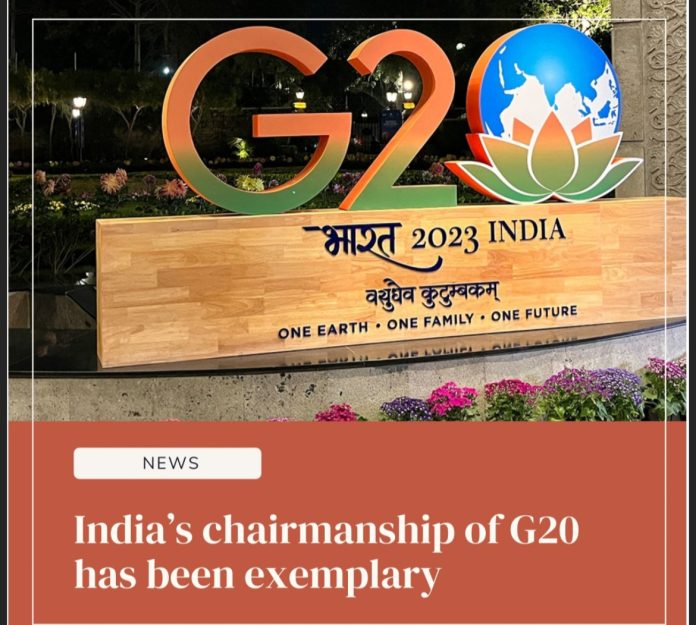India is currently dealing with the geopolitical reality of the world, which is characterised by rising tensions and strategic competition among global actors. While the war, which has remodeled global alliances and power relations, has taken place, India’s strategic neutrality has been seriously questioned. Thus, the existing Indo-Chinese border disputes have continued, even aggravated, to be the most significant security challenge to India and its regional and global relations. As the world becomes more complicated, the roles that India plays as the G20 chair and a non-permanent member of the UN Security Council are more significant than ever. These positions give India a rare chance to guide through the constantly changing global diplomacy and safeguard its interests and those of developing countries.
India’s G20 Chairmanship and UN Security Council Membership
India, with its chairmanship of the G20 in 2023, has aimed to direct the global dialogue around the highly relevant issues of sustainable development, climate change, and health. The goal of Dollar’s agenda, based on the principles of inclusive growth and equitable development, was to reduce the gap between developed and developing members so that the Global South could highlight its urgent needs. India accomplishes this by properly prioritizing sustainability policy to safeguard the environment from the damaging effects of economic growth and by supporting green technologies and renewable energy sources to lessen the negative impacts of climate change on the environment.
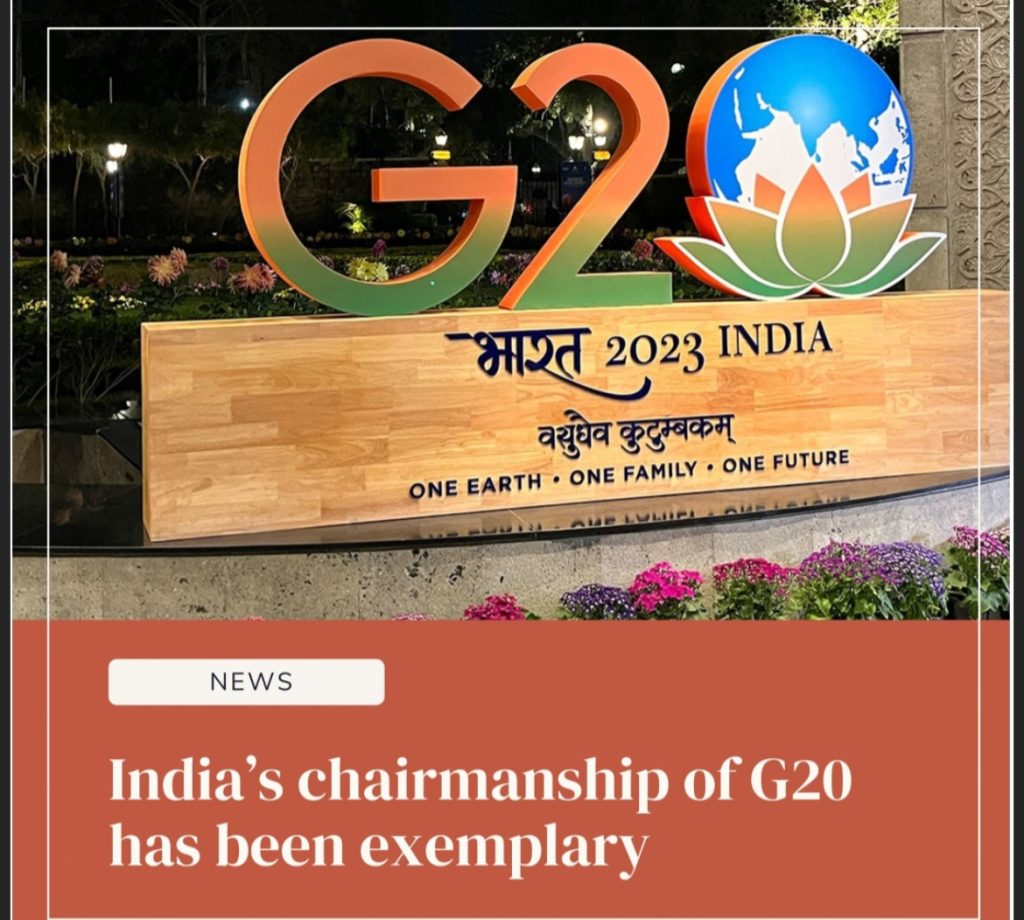
Figure 1: India’s chairmanship of G20 has been exemplary
In the same way, India’s tenure as a non-permanent member of the United Nations Security Council confirmed its firm resolve for the maintenance of peace at the global level. Through the use of this stance, India sought to deal with regional conflicts, become a mediator between states, and also endorse dialogue and diplomatic solutions over military responses. India’s initiative was designed specifically to accentuate the voices of the Global South within the Security Council.
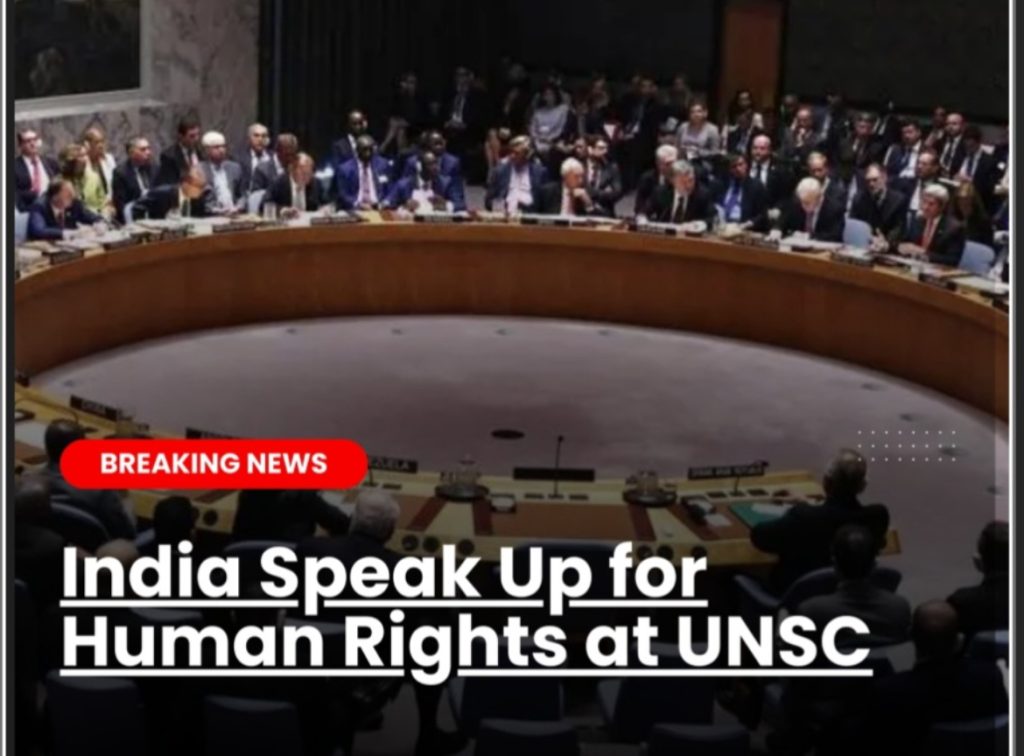
Figure 2: India Speak Up for Human Rights at UNSC
The Russia-Ukraine Conflict: India’s Strategic Neutrality
India’s mechanism concerning the Russia-Ukraine conflict demonstrates its tactical attitude of staying on balance amidst world geopolitical tensions. Deeply rooted in India’s continuous engagement with Russia since the Cold War period and Moscow’s role as the key ally, the traditionally dominant areas of India’s relations with Russia have been defense, energy, and diplomacy. This years-old treaty forces New Delhi to display subtlety in handling the Russia-Ukraine crisis, which is also against India’s strategic neutrality principle.
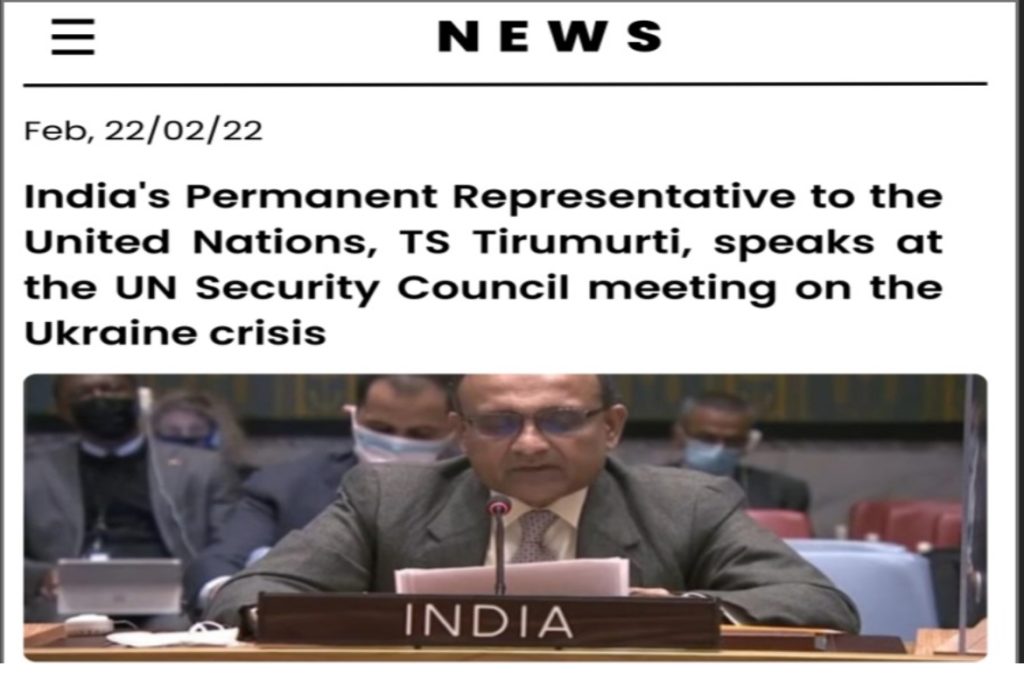
Figure 3: India’s Permanent Representative to the United Nations, TS Tirumurti, speaks at the UN Security Council meeting on the Ukraine crisis
India’s position is not just a mirror of its historical relations but also a well-thought-out action as it falls into India’s foreign policy strategy that seeks a multipolar balance. By not taking a clear stance against the Western Powers’ counter-Moscow alliance, India reaffirms its resolve to be a non-aligned and self-governing nation with the ability to resist the pressures to adhere to a bloc political model. This doesn’t mean it’s an easy task and that it does not have repercussions on India’s international relations. For India, this policy helps it maintain independent strategic policies. Still, it necessitates India to be careful in handling the strains with its Western allies, such as the United States and the European Union countries, who seek an assertive role to counter Russia globally.
Tensions with China: The Border Standoff and Beyond
As a significant hotspot in Asia, the border dispute between China and India, having its port of call in the deadlock in the Ladakh sector, is fraught with long-term implications for the region’s security and the international political order. Both antagonistic nuclear neighbors have been fighting ages-old territorial disputes. Still, the nature of these tensions has and continues to dramatically shape the foreign policy and strategic stance of India.
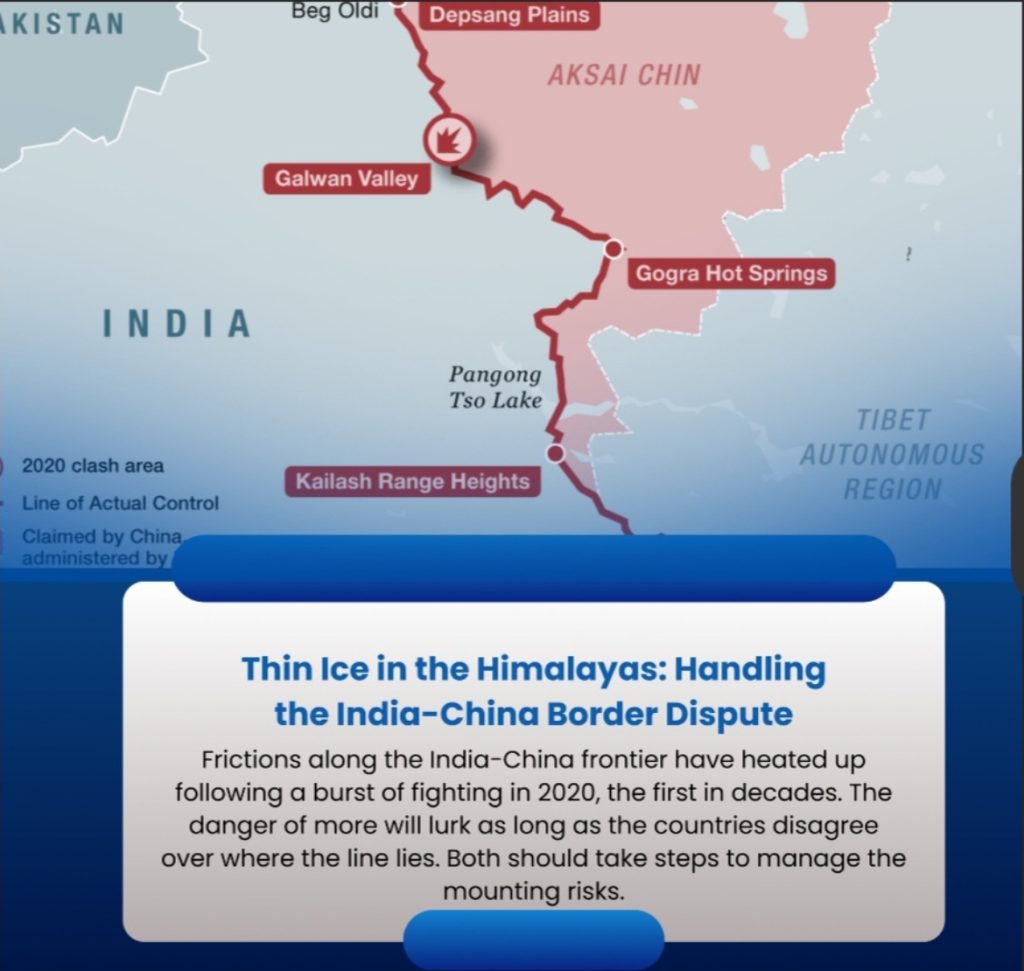
Figure 4: Map of the Line of Actual Control Dividing China and India.
In light of the escalation of tension along the border, India is revising its military strategy, which incorporates the deployment of more troops in the disputed area and steps up the pace of its weapons procurement. The effect of the above measures will be India’s attempt to counter China’s aggressive regional policy through a more vital strategic collaboration in Asia and beyond. The revival of Indian interactions with the Quad grouping, including the United States, Japan, Australia, and India, is a remarkable feature that complements the Indo-Pacific region’s rising prominence. Whereas the Quad was initially set to be a discussion forum, its reforming role is to work on an open, inclusive, and accessible Indo-Pacific order.
India’s Role as the Voice of the Global South
Through building India’s position as a diplomat from the Global South, the country has become a voice for countries deprived of increased benefits from the international order. At the helm of the nation’s efforts has been India’s bid for reforms in the global multilateral architecture to ensure that the Global South’s voices are heard and strongly influence international policies and decisions. India has played a remarkable role at the forefront of the healthcare system, specifically during the COVID-19 pandemic, especially regarding vaccine equity, by underscoring that all countries, not just the richest, should have access to affordable vaccines. A pharmaceutical powerhouse of the country has been used in this pursuit, specifically through the Vaccine Maitri Initiative, which was aimed at providing vaccination to deficient countries.
Also, India has been pledging with other countries since the pandemic has had a disproportionate impact on the economies of developing countries, and hence, the call for joint efforts to support these regions should be emphasized in trying to invoke their economies. With platforms like the G20 and its involvement in various global platforms, India has been emphasizing steps like debt relief, an increase in development support, and technology transfer to improve sustainable development. This is essential to overcoming the North-South divide.
These efforts demonstrate India’s resoluteness to go beyond its national self-interest and stand up for the Global South’s collective goals, worries, and aspirations.
Conclusion:
Therefore, the year 2023 brings a combination of difficulties and opportunities for India in the complex arena of geopolitics. It pursues diplomacy, maneuvering between major powers, and championing the causes of the Global South, which highlights the growth of this country as a global power. The type of approach India takes as it manages knotty situations will have a bearing on its international visibility, as it will positively influence peace, stability, and the development of the world.
References
G20 India (2023). 2023 G20 New Delhi Update. [online] Available at: https://www.g20.in/content/dam/gtwenty/gtwenty_new/document/G20-2023-New-Delhi-Update.pdf [Accessed 20 Mar. 2024].
GIS Report (2024). India-Russia relations show renewed spark – GIS Reports. [online] Available at: https://www.gisreportsonline.com/r/indo-russian-friendship-is-being-reaffirmed/ [Accessed 20 Mar. 2024].
India’s ‘Vaccine Maitri’ Initiative (2023). India’s ‘Vaccine Maitri’ Initiative | Manohar Parrikar Institute for Defence Studies and Analyses. [online] idsa.in. Available at: https://idsa.in/idsacomments/indias-vaccine-maitri-initiative-asajjanhar-290121 [Accessed 20 Mar. 2024].
OECD (2023). Development Co-operation Report 2023: Debating the Aid System. [online] OECD iLibrary. Paris: Organisation for Economic Co-operation and Development. Available at: https://www.oecd-ilibrary.org/development/development-co-operation-report-2023_f6edc3c2-en [Accessed 20 Mar. 2024].
Permanent Mission of India to the UN (2023). Welcome to Permanent Mission of India to the UN , New York. [online] pminewyork.gov.in. Available at: https://pminewyork.gov.in/press?id=eyJpdiI6IngwTXlSN1FSUVVXSlV6bVVqMVZjM2c9PSIsInZhbHVlIjoiaVBvemNnNElYbWxMNG1PRXhKRmN1dz09IiwibWFjIjoiOTI5ZTI3MjJkN2E3N2JjNWI4ZWMyYTE1NjA2NmY4Mzg3ZDllN2Q4NzA3NWExMGFjOWNhY2EwZDZhNWYyODRhYyJ9 [Accessed 20 Mar. 2024].
Vaidyanathan, V. (2023). India’s development cooperation in Africa: The case of ‘Solar Mamas’ who bring light. WIDER Working Paper. [online] doi:https://doi.org/10.35188/unu-wider/2023/353-6
If you like our content, join us in helping to bring reality and decency back by SUBSCRIBING to our Youtube channel: https://www.youtube.com/channel/UCQ1Ll1ylCg8U19AhNl-NoTg AND SUPPORTING US where you can: Award Winning Independent Citizen Media Needs Your Help. PLEASE SUPPORT US FOR JUST £2 A MONTH https://dorseteye.com/donate/

